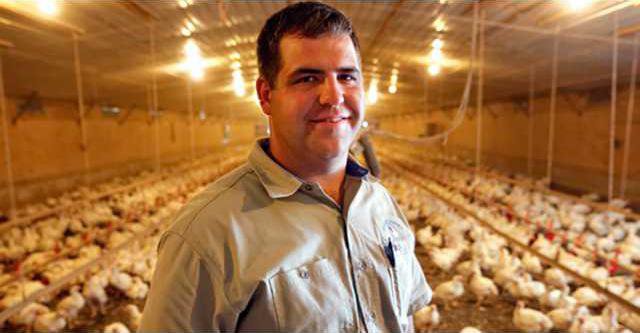![]() A new documentary from producer/director James Moll could be validating, enlightening or concerning, depending on your perspective. "Farmland" shares the perspectives of a half-dozen cattle ranchers, vegetable farmers and other rural Americans who operate far from the grocery shelves. For urban America, it is an eye-opening look at the people who produce much of the food we find at the supermarket. For those a little closer to our farmlands, it's a validation of a lifestyle far from the public eye. For Americans in general, it raises important questions that affect us all.
A new documentary from producer/director James Moll could be validating, enlightening or concerning, depending on your perspective. "Farmland" shares the perspectives of a half-dozen cattle ranchers, vegetable farmers and other rural Americans who operate far from the grocery shelves. For urban America, it is an eye-opening look at the people who produce much of the food we find at the supermarket. For those a little closer to our farmlands, it's a validation of a lifestyle far from the public eye. For Americans in general, it raises important questions that affect us all.
"Farmland" has plenty to say about its salt-of-the-earth subjects, but most of its message can be grouped categorically. Early on, Moll seeks to defuse the backward image many people have of farmers, that of the uneducated, plain, "American Gothic"-style harvester. The farmers in "Farmland" are plenty willing to get dirty, but most are college-educated and use all sorts of modern technologies to do their jobs out in the fields.
But "Farmland" is about more than demographic image. Later in the film, the documentary addresses weightier controversies such as the debate over use of GMOs (genetically modified organisms) to boost product quality, or whether the use of pesticides and other chemicals in fields is a genuine reason for concern. While the film's subjects were unified when it came to their lifestyle image, here their opinions vary a bit more and are more illustrative of the gulf between a supposedly informed public and the people dealing with the roots of the problems.
Regardless of how you feel about those kinds of issues, the most compelling topic in "Farmland" is the question of the industry's future. Most of the film concentrates on farmers who came to their work through family, one with generations that go back before the Civil War. But as more and more kids leave home to get educations and decide against continuing the family business, the question of who will bring in the harvests of the future becomes more poignant.
Here is where Margaret Schlass becomes the most interesting of the film's subjects. Unlike the other farmers interviewed for the documentary, Schlass signed up for the agricultural lifestyle from outside its culture. She runs a business called "One Woman Farm" in Pennsylvania, growing and selling vegetables through a variety of local outlets. As she describes the process of getting started without the advantage of inherited land, the viewer quickly realizes that the ideological jump required to "live off the land" is only one part of a complex and costly equation.
Over the course of an hour and 17 minutes, "Farmland" mulls these issues through interviews with cattle ranchers, organic farmers, hog farmers and others everywhere from California to Texas to Nebraska. It's a pretty straightforward production, bereft of fancy filmmaking tricks, which actually feels appropriate for its straightforward, down to earth subjects. The documentary is at its best when it delves into the personal lives of its subjects, spending time with one family as they mourn the loss of their patriarch, and contrasting it with another who retains hope for its farming future with the birth of twins.
As far as a documentary goes, it's fairly one-sided; only a brief passage addresses the well-publicized accusations of animal mistreatment, and even then it only offers rebuttals from those most likely to protest. So it may not provide an in-depth examination of the issues so much as it offers a voice for the people neck deep in them.
"Farmland's" ultimate value will probably depend on the perspective of who is watching it, but considering the techno-heavy day-to-day lives of the people most likely to see it on the big screen, it is a refreshing look at a faraway lifestyle that embodies some overlooked American values.
"Farmland" is not rated, but would probably receive a PG for some brief images of farm animal cruelty.
You can see more of Joshua Terry's work at woundedmosquito.com.
'Farmland' takes viewers on a trip to rural America


Latest
-
 Its toxic: New study says blue light from tech devices can speed up blindness
Its toxic: New study says blue light from tech devices can speed up blindness -
 This upset man was turned away from voting polls because he was wearing a MAGA hat; here's what th
This upset man was turned away from voting polls because he was wearing a MAGA hat; here's what th -
 Facebooks stock suffers the worst single-day market loss in history. Heres how much Mark Zuckerber
Facebooks stock suffers the worst single-day market loss in history. Heres how much Mark Zuckerber -
 Roseanne Barr speaks with Sean Hannity in first TV interview since racist tweet controversy. Here ar
Roseanne Barr speaks with Sean Hannity in first TV interview since racist tweet controversy. Here ar